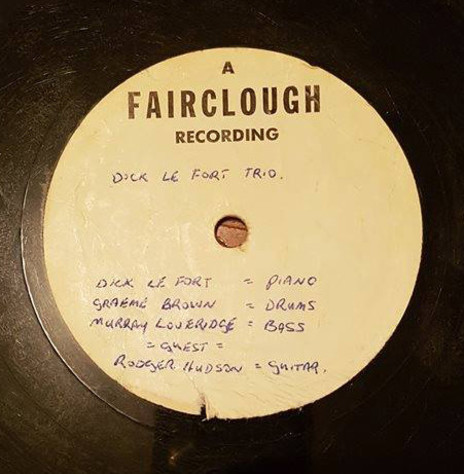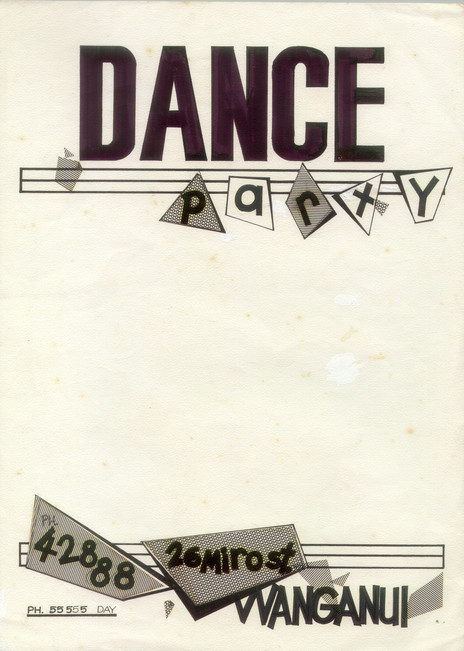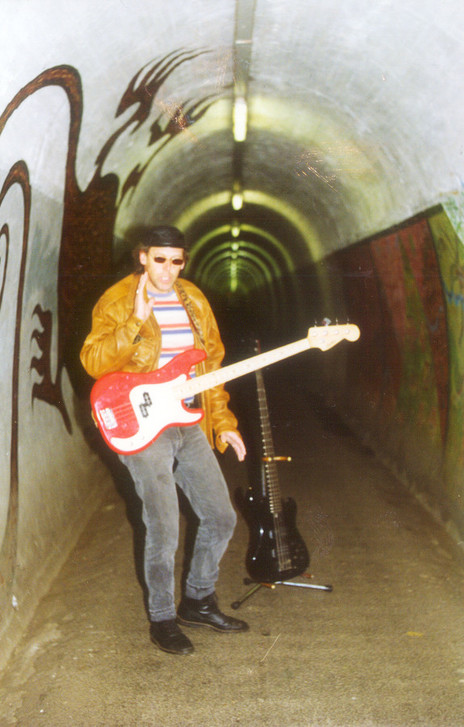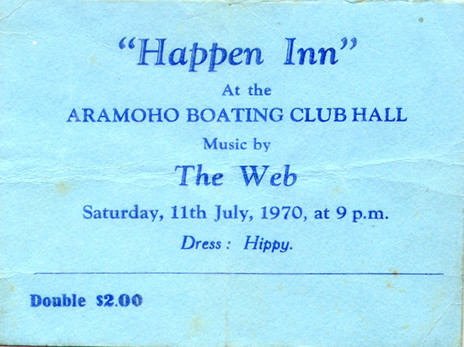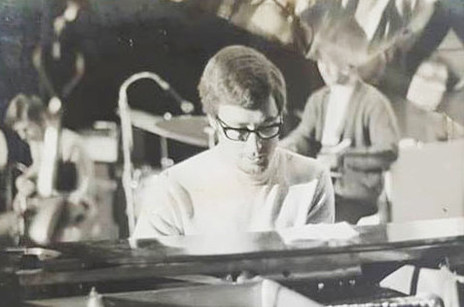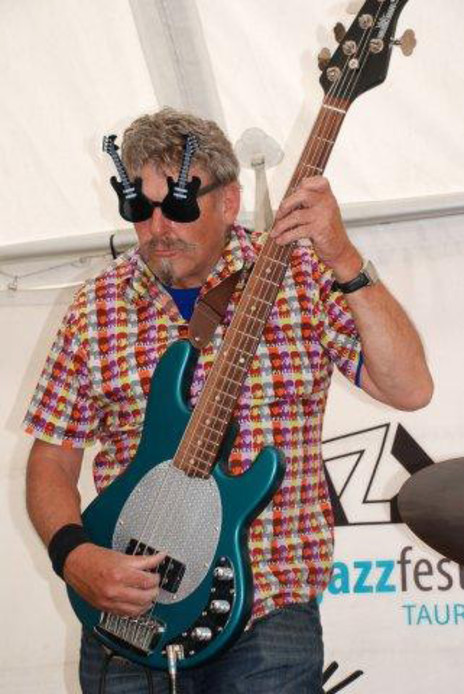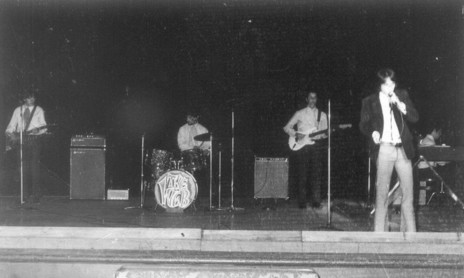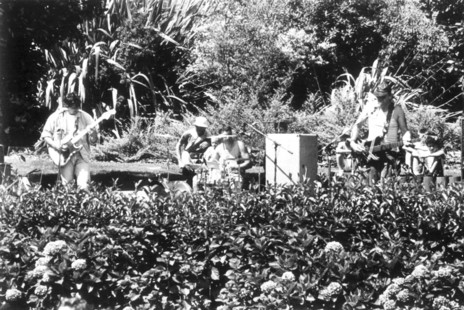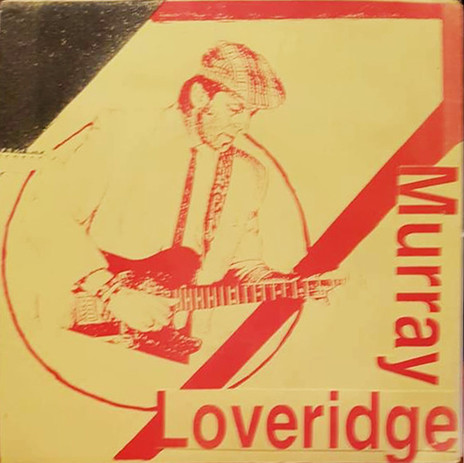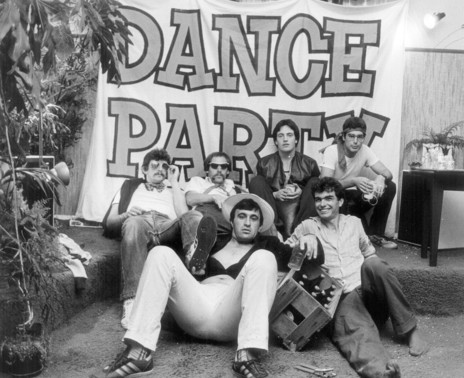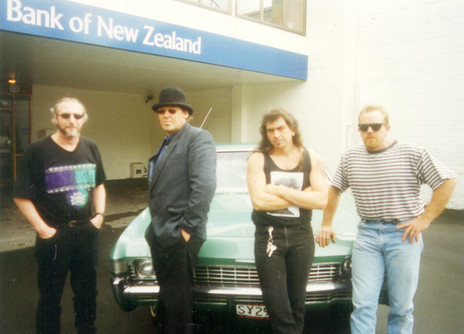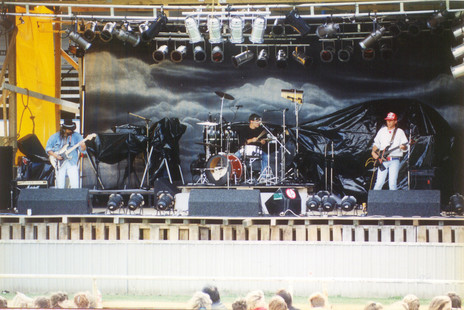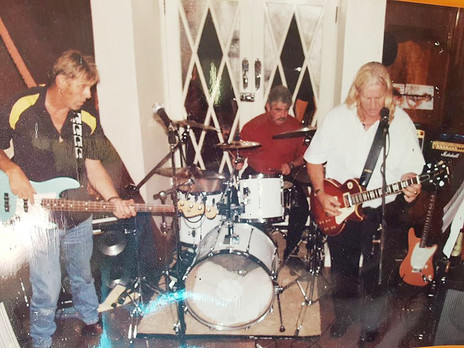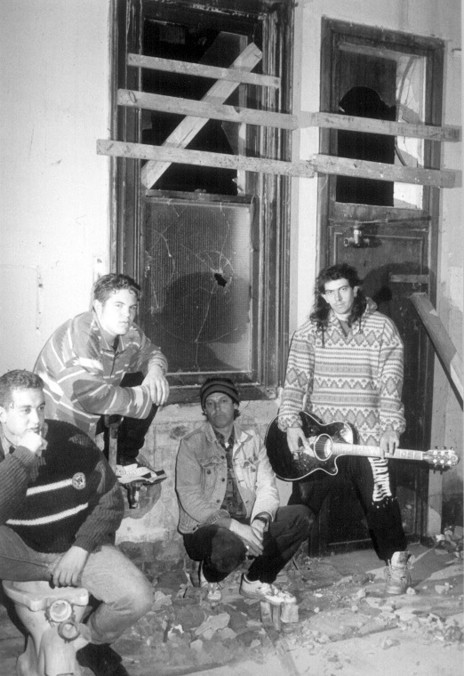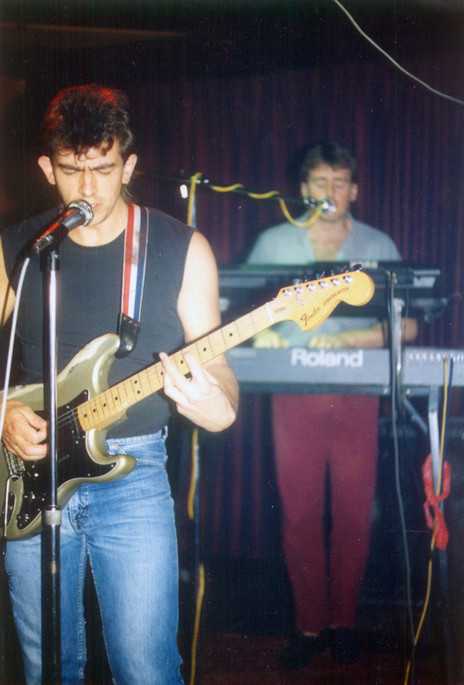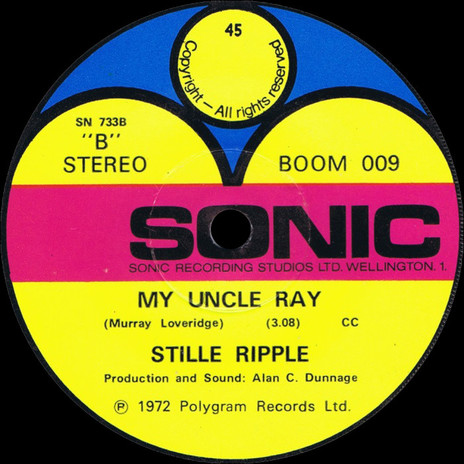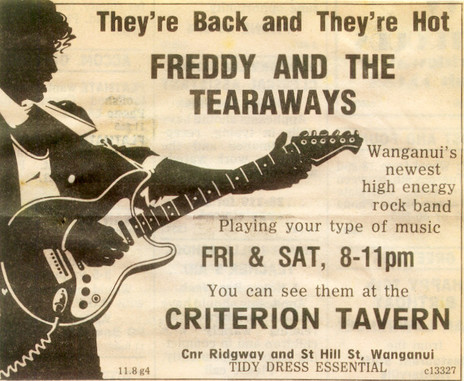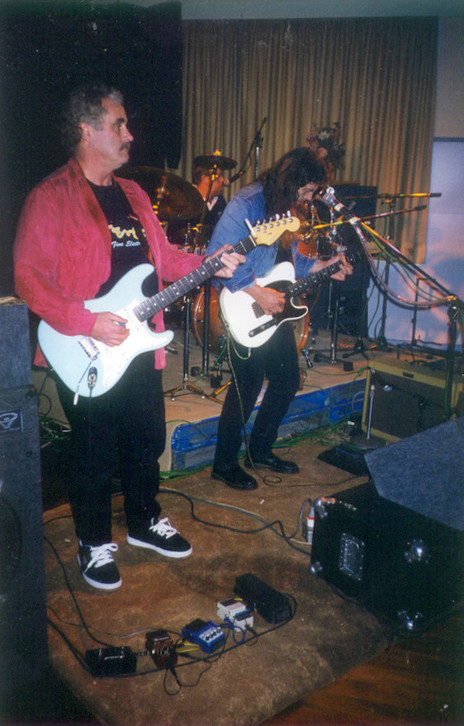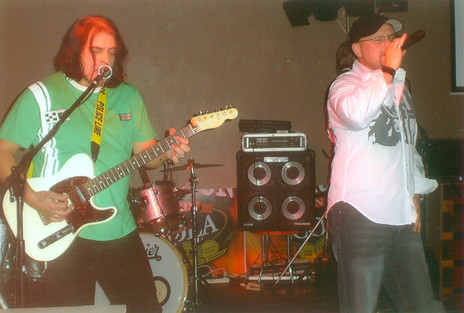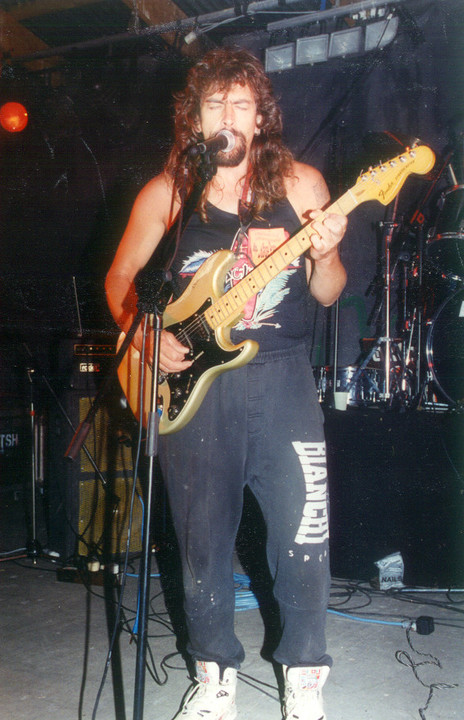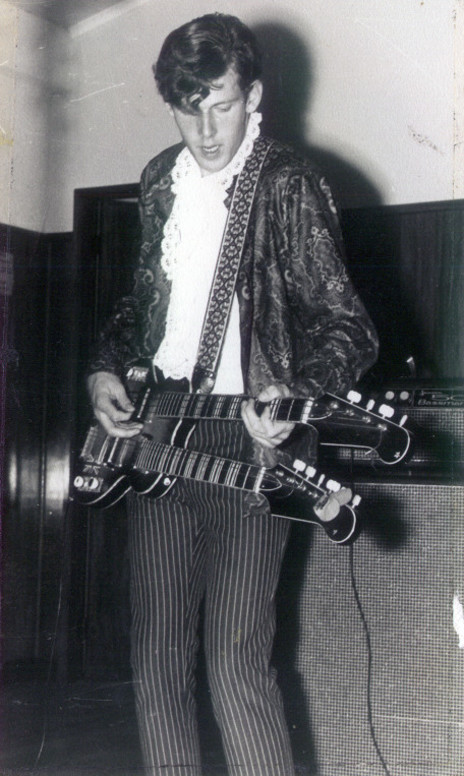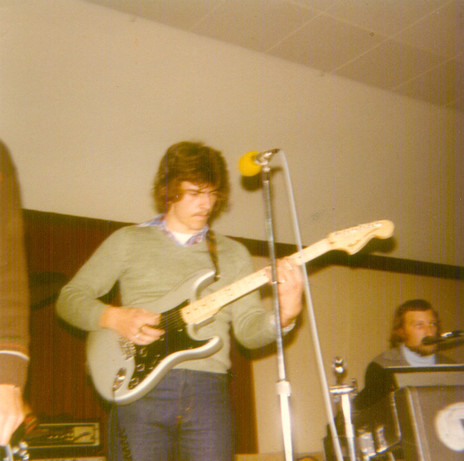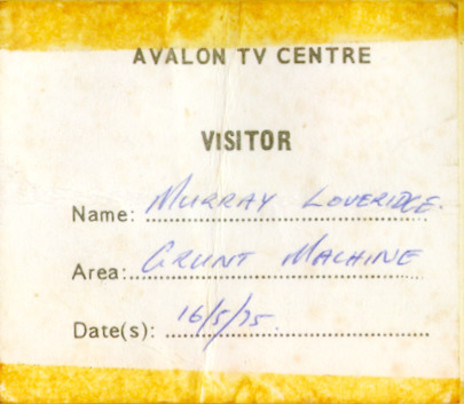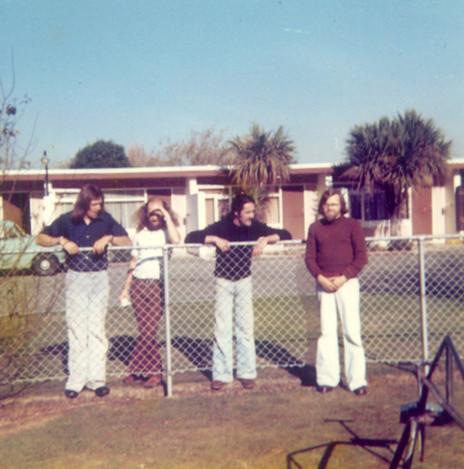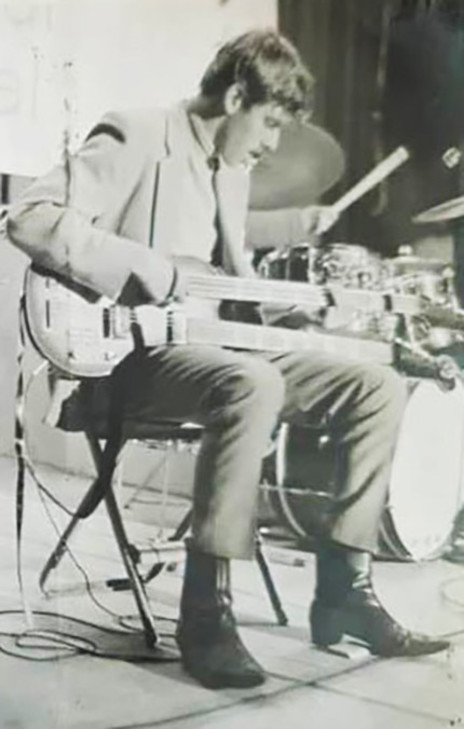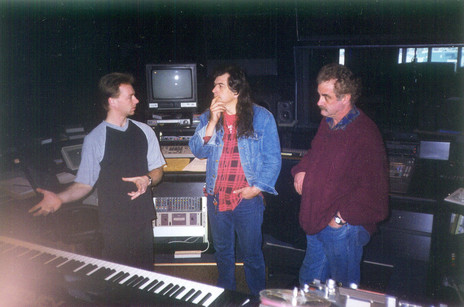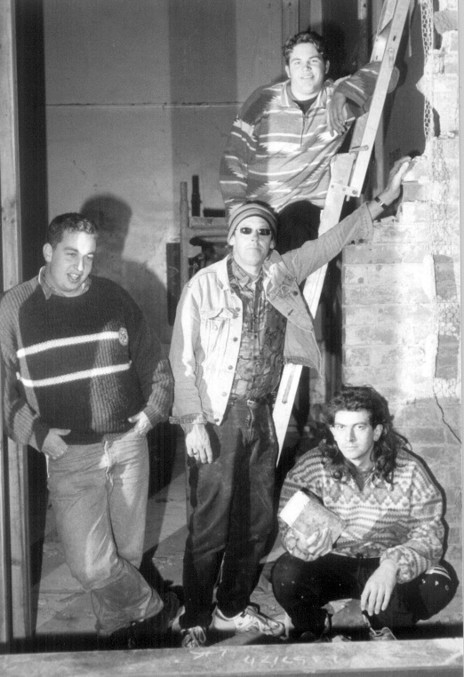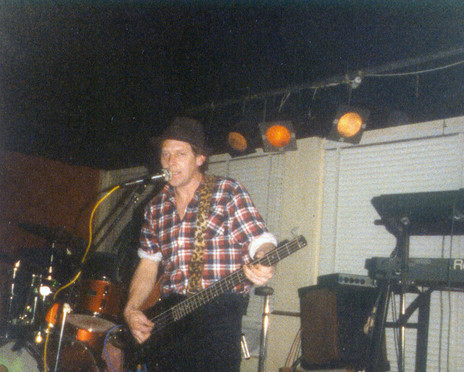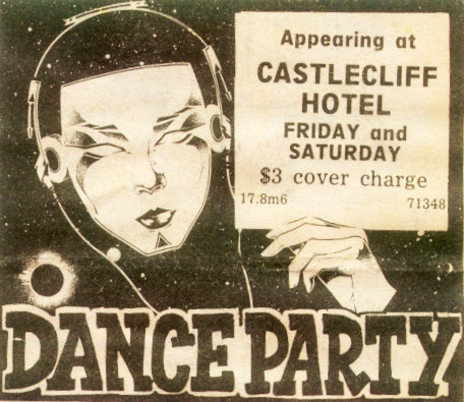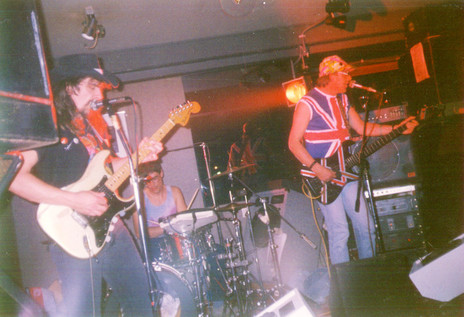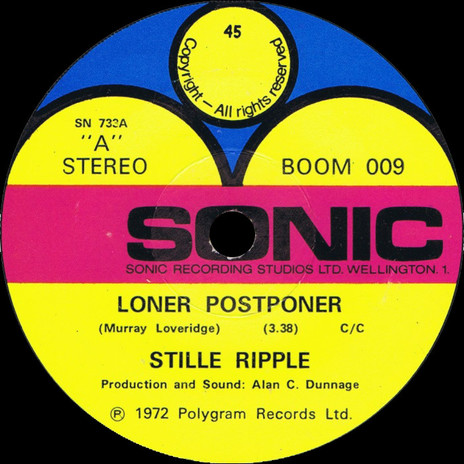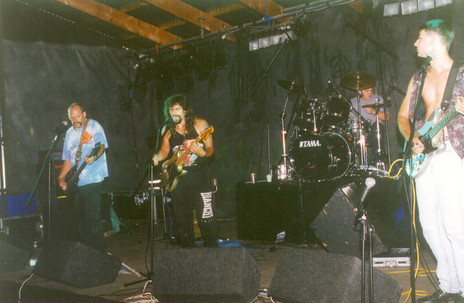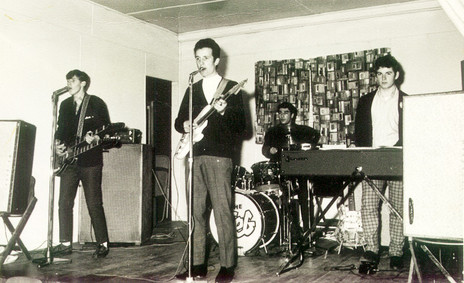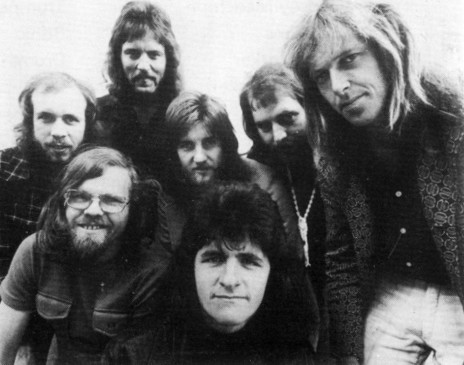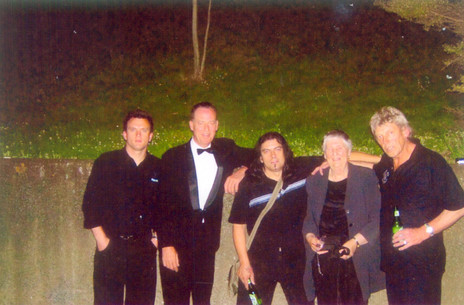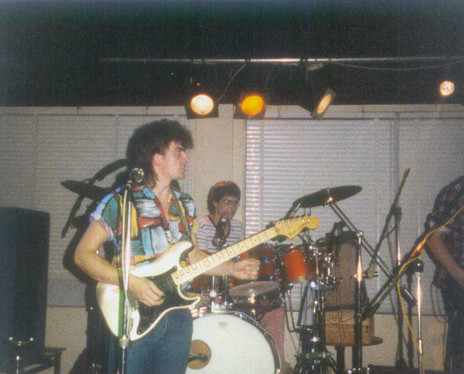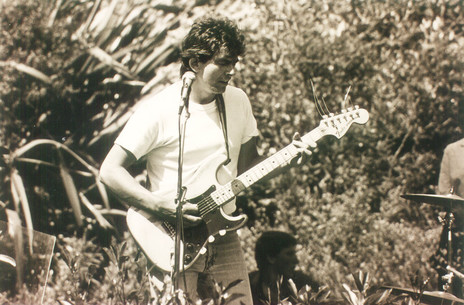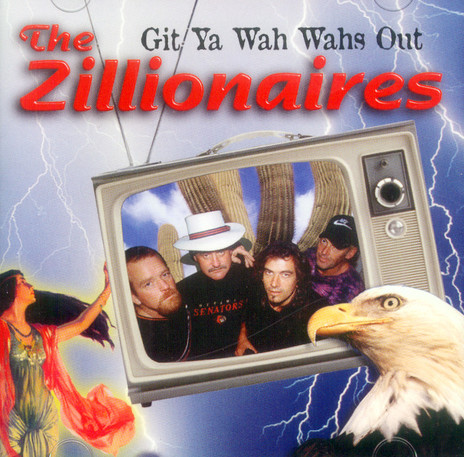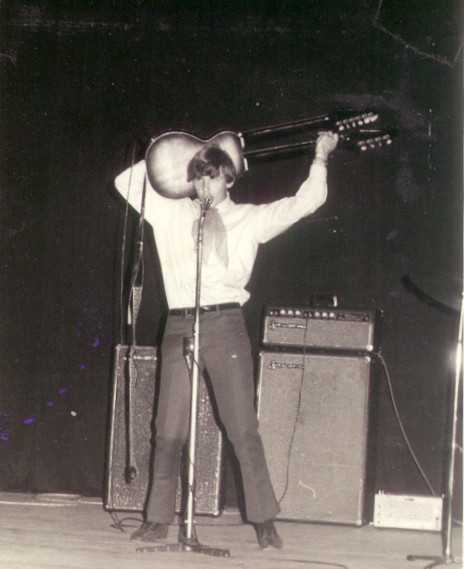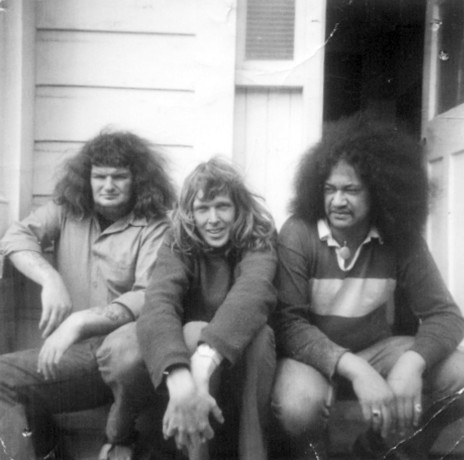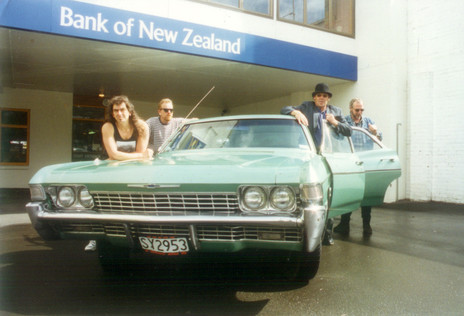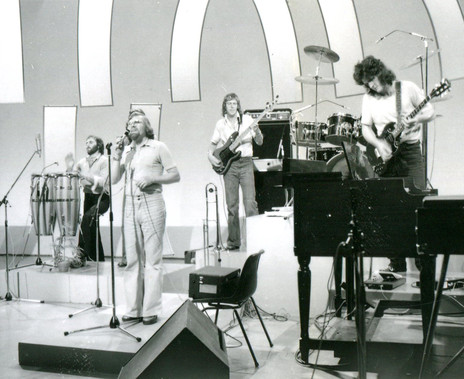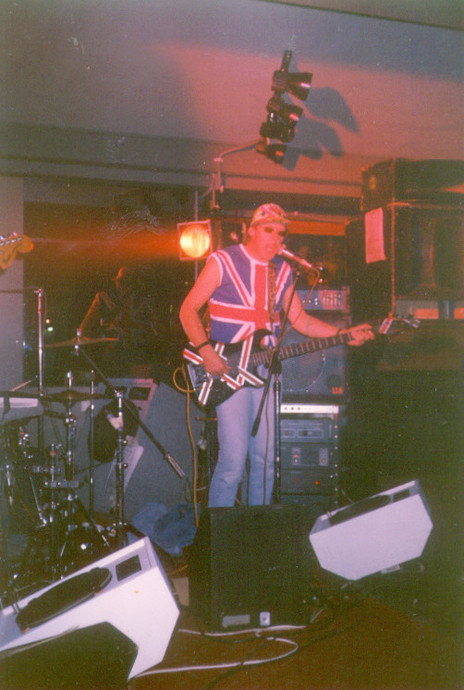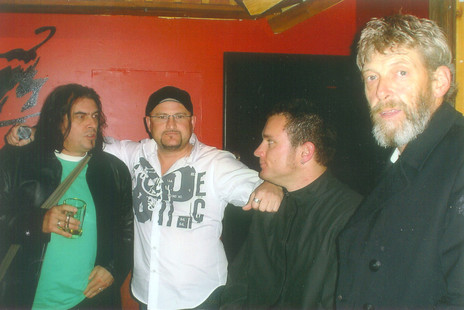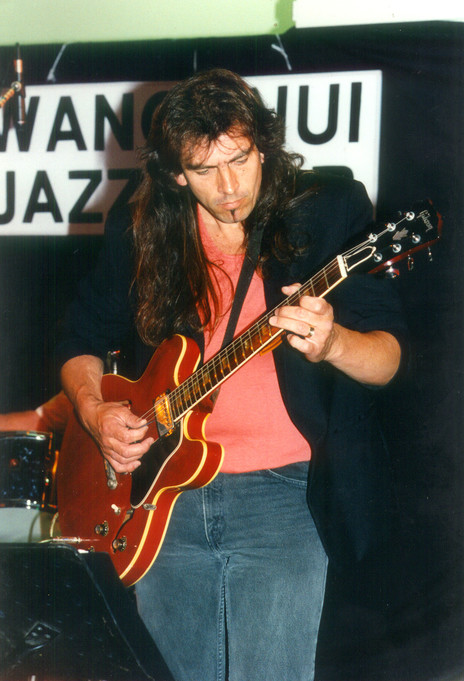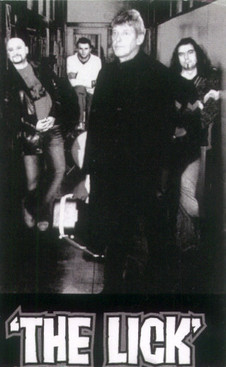Their father, Walter Ray Loveridge, recorded two songs, ‘Land Of The Long White Cloud' and ‘Make Believe Cowboy’, with the songs credited to Walter Loveridge and his Jazzmen (Hinemoa’s brothers).
Murray played his first gigs as a schoolboy. “It wasn’t the type of music I wanted to pursue […] but I got paid well for playing bass in Uncle Rod's trad jazz band.” He made his first recording with The Dick Le Fort Trio in 1968, then joined The Web, who made waves in Whanganui before relocating to Wellington in 1970. Following The Web, Murray joined Tanglefoot, with a residency at Wellington club Ali Baba’s and a line-up forever in flux.
After Tanglefoot, Murray’s studio band StilleRipple released the single ‘Loner Postponer’ b/w ‘My Uncle Ray’, with Murray writing both songs. He filled in as bassist with both Peter Caulton and Midge Marsden’s Country Flyers until in 1973 Malcolm Hayman offered him a place in the final line-up of The Quincy Conserve. He played on their 1975 self-titled album.
Murray’s television appearances with Quincy Conserve include a residency on the Edwards on Saturday late-night TV show, hosted by Brian Edwards. There were also appearances on Grunt Machine and Ready To Roll. His early session work included recordings with Mark Williams and Prince Tui Teka and live performances with Shane (with The Web) and Gene Pitney.
Fred Loveridge’s first gig, aged 12, was replacing Murray as bassist in his uncle Rod’s band, which he describes as “a valuable grounding”.
“I was keen to follow Murray to Wellington but was way too young,” Fred recalls. Instead, still at school, he joined local band Tarot, playing four nights a week at Whanganui’s Rutland Hotel. “Other kids had paper and milk rounds while I played Steely Dan, America and other covers.” With Murray now bassist for Quincy Conserve, Fred attended many of their gigs and rehearsals, listening, watching and learning.
In 1976 Quincy Conserve dissolved, spawning two new acts: The 1860 Band, and the rock band Captain Custard formed by Murray and Malcolm Hayman. Fred, now 17, relocated to Wellington, joining Murray in Captain Custard, replacing guitarist Don Burke. In 1979, they were playing Tuesday to Thursday and Saturday nights at Wellington’s Royal Tavern. “Friday nights were anybody’s guess,” he says, “often the Kings Cross, Quinn’s Post, Cricketers Arms or out of town shows.”
Returning to Whanganui in late 1980 the Loveridge brothers became interested in Christianity.
When the Loveridge brothers returned to Whanganui in late 1980 they became interested in Christianity and, reflecting their new faith, formed the Alpha Gospel Band. The band released an album entitled Jesus for the Eighties and performed at churches and outdoor venues around the North Island. Fred recalls playing in Hamilton, and a short tour taking in centres such as the Coromandel, Tauranga Soundshell, Whitianga, and Waihi. “We also did some stuff in Napier in the soundshell ... a lot of fun.”
In 1984 the brothers assembled a new band catering to the dance club market. They quickly became popular in Whanganui’s then-vibrant live music scene. In November 1985 their band Dance Party won the Whanganui Battle of the Bands, and their prize was 10 hours at Wellington’s Crescendo Studio. Dance Party recorded three original tracks: ‘Lights, Camera, Action’, ‘It’s Too Late’ and ‘There She Goes’. The masters were sent to Ode Records, who expressed some interest but the proposed EP wasn’t released and the masters are thought to be lost.
Dance Party, flushed with its success from the local competitions, decided to sign up for Telequest: a national talent quest with a televised final. Talking to reporters after the event, vocalist Peter Calkin commented ruefully that, after a quick soundcheck and a couple of rehearsals, “... that’s it. If you blow it on your take, too bad.” Disconcerted by the cameras and the unfamiliar environment of the TV soundstage the band failed to place in the final.
Subsequent line-up changes triggered a renaming as Smart Remarx. They continued to gig locally but faced a decline in demand for bands, exacerbated by their large line-up.
Losing the frills of previous bands Murray and Fred retained drummer Mike McGrail and cut down to a trio, Freddy and the Tearaways. In the eyes of the Whanganui public this was to become their best remembered incarnation. The concept was simple: what the trio line-up lacked in versatility would be made up for in volume and attitude.
The band honed down a repertoire of covers along with a handful of original material deriving their style from Jimi Hendrix and Stevie Ray Vaughan. McGrail experimented with electronic drums and Fred fattening up his sound to fill the gaps left by the absence of additional instruments. All three contributed vocals. By 1990 they were drawing premium crowds at hotels and outdoor events throughout the region.
Freddy and the Tearaways revisited Crescendo Studios for sessions that produced five tracks. Masters are intact but the recordings remain unreleased. In early 1992 the Tearaways played a free concert at Whanganui’s Virginia Lake. The 300-plus audience was the last to hear the band in action. A renewed interest in Christianity led to a change of direction.
Formed in the tradition of The Alpha Gospel Band, Under Construction was initially a vehicle for Christian outreach. The band recorded consistently at Bert Whitcombe’s Snappy Tracks home studio, leaving a legacy of technically competent gospel recordings in its wake. Over the following years the line-up was honed down to a quartet, producing a harder and more palatable version of the gospel genre. The later line-up began booking gigs in pubs around Whanganui and Taranaki.
Under Construction shrugged off the Christian influence and
re-branded as The Zillionaires.
After further line-up changes, Under Construction shrugged off the Christian influence and re-branded as The Zillionaires. They continued to play pubs in the Whanganui region where they were popular. In 1998 they opened a reunion gig by local 1970s act Velvet Morning. This led to gigs with Velvet Morning guitarist John Bilderbeck added to the line-up; he became a permanent fixture after keyboardist David Berryman left. This line-up recorded an album entitled Git Ya Wah Wahs Out in a nod to the Rolling Stones’ similarly named live album.
After the release of the album the band assessed its options. There was a plan to move to Australia, but internal relationships soured. In the end The Zillionaires dissolved and only Murray made the leap, relocating to Melbourne where he performed with covers bands Nana’s New Hip and Brotherhood Of Blues.
Fred remained in Whanganui and widened his repertoire through a twice-weekly commute to jazz school in Wellington. He set himself up as a guitar teacher, and became the only local in recent Whanganui history to successfully make his living as a fulltime professional musician, a lifestyle which he maintains to this day.
In 2004 Murray, back in Whanganui, and Fred joined forces with drummer Nigel Bateman and vocalist Tim Davies to form The Lick. They recorded the incendiary single ‘I See Through You’, backed up with the equally solid ‘You’ll Never See My Face Again', and became a favourite on the pub scene with their mix of hard rocking originals and covers. The Lick opened for Jimmy Barnes at his 2005 Boxing Day concert, released a video for ‘I See Through You' – broadcast on music TV – and were beginning to make waves on rock radio when Davies pulled the plug, telling radio programme directors, “The Lick have broken up.” The remaining musicians chose a new vehicle and started again.
Blues Buffet was formed from the core of the Loveridge brothers, plus Nigel Bateman; keyboardist Paul Wilson joined, and all four members sang. The band plugged into the national jazz and blues festival circuit, and often gigged with Erna Ferry on vocals and harmonica.
At the time of writing, Blues Buffet has released three blues-rock albums. The first, Appetiser, was recorded and mixed in 2009 at Whanganui musician Richard Littlejohn’s home studio. To support the album the band appeared on TV’s Good Morning show, played regular gigs at Wellington’s Bristol Hotel and secured slots at festivals around the North Island. The 2011 follow-up All You Can Eat Baby was recorded at Levin’s Tsunami Studios, with Littlejohn again producing. In 2016 came Reality Show, which marked a return to Littlejohn’s home studio and a shift away from a blues-only repertoire. It was also the debut of new drummer Adam Dixon making his debut.
A fourth album was mooted, but in mid-2018 Fred described the band as being “in hiatus, I guess”.
The Loveridge brothers have also made many solo recordings. After the debut solo release as StilleRipple, Murray’s first single under his own name was ‘Travellin’ Man’ in 1988, which also featured Fred on guitar. “I just wanted to get something on the radio,” said Murray, “I only set out to do that.” The single was broadcast on The Kiwi Rock Show. On the B-side was Corben Simpson’s Silver Scroll winning ‘Have You Seen a Man Cry’. In the early 1990s Murray recorded the gospel album Going Public at Bert Whitcombe’s 4-track home studio and, in 2009 – as Dusty Lovett – released ‘The H Song’, which was played on local radio. Murray also played with covers band Heavy Water until their disbanding in 2017.
The Loveridge brothers have also been members of Richard Littlejohn and the
6 Twenty 8 Band, Jazz Connection, and Freddy Flash and the Firebirds
Fred Loveridge is a prolific songwriter, responsible for many of the tunes for his and Murray’s bands. In the 1990s he began recording solo material at Bert Whitcombe's home studio and Whanganui’s Sasquatch Studios. A track from these sessions, “Patience”, appeared on 1998’s Muster – Whanganui Compilation. More solo recordings were completed in 2004. ‘Overload' was recorded in brother-in-law Lloyd Hawley’s home studio and gained regular airplay on Whanganui’s More FM. Other tunes recorded at this time included the George Harrison-inspired ‘Able’ and the 1970s, Californian-sounding ‘Something Turns To Nothing’. From 2012 to 2017 Fred recorded and performed with The Clazzmatic Boogie Orchestra, which was eventually defeated by the logistical challenge of its large line-up.
The Loveridge brothers have been members of Richard Littlejohn and the 6 Twenty 8 Band, and Jazz Connection (who supported Michael Barrymore on his 2004 My Kind of Kiwis comeback tour) and are part of the occasional band Freddy Flash and the Firebirds. In December 2015 they joined former Dance Party bandmates for a one-off reunion gig at Whanganui’s Stellar Bar (the former site of the legendary and sometimes notorious music venue Foster’s Tavern).
And – full disclosure – the Loveridges contributed extensively to my album Sophia’s Child, and Murray played on several of my earlier albums.
Fred performs with covers band Whiskey Mama, records, performs, and contributes to songwriting with Re-set. Murray plays bass for covers band Dusta.
--
Read: The Loveridge brothers – a selected discography
